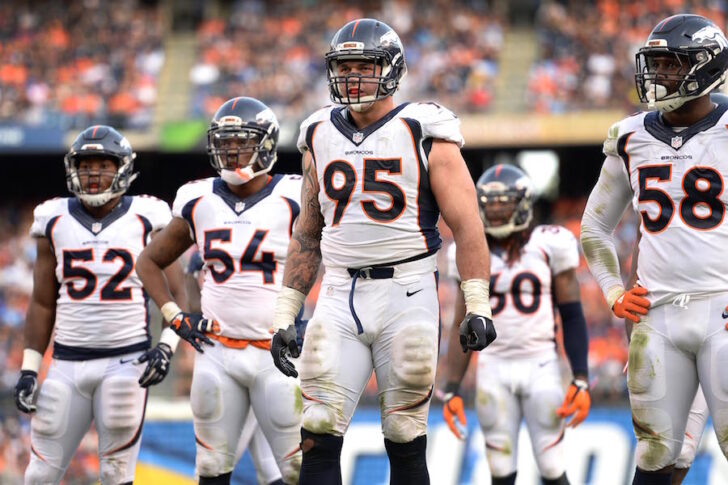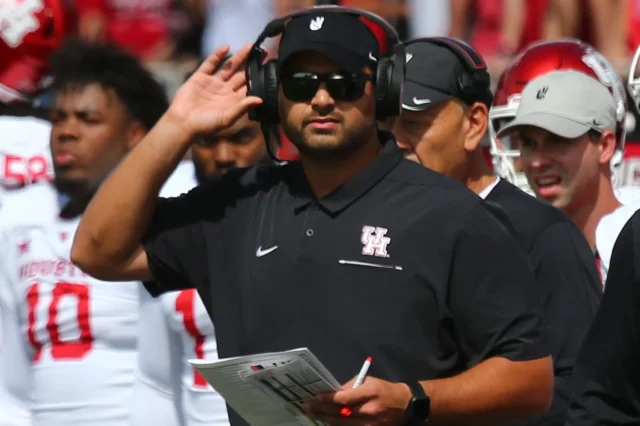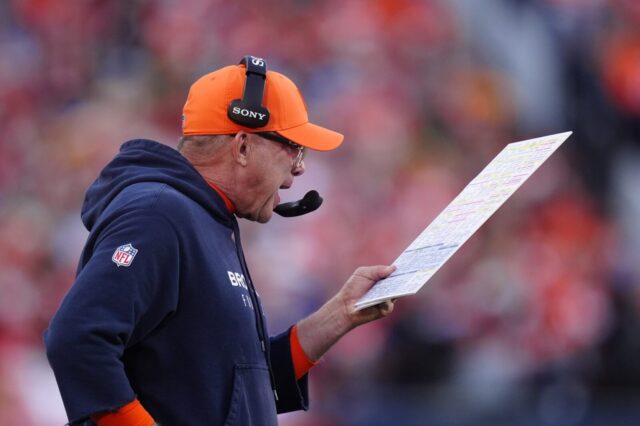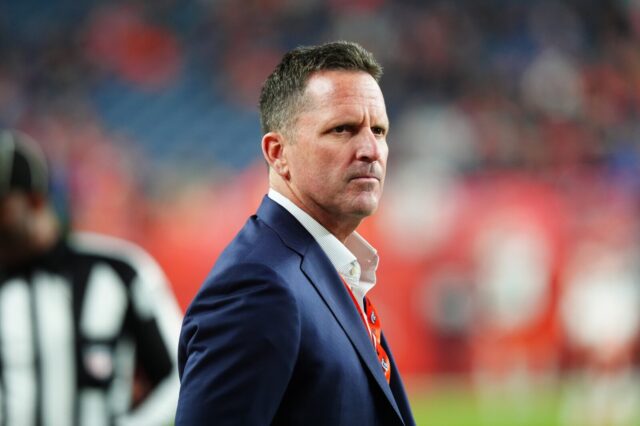As it sits right now, the Denver Broncos have a salary cap problem. Check that, the Denver Broncos have a salary cap challenge. If the season were to start today the Broncos would be $1.8 million over the salary cap. Luckily, the season doesn’t start today. But that doesn’t change the fact that John Elway and his team have some serious number crutching ahead of them.
Working around the salary cap is a true test for every general manager in the NFL. The greatest ones are able to squeeze every penny and the bad ones let it eat them alive, crippling their franchises. This offseason will be Elway’s true salary cap test.
Peyton Manning’s scheduled $21.5 million hit isn’t the root of this problem. If No. 18 doesn’t retire by March 9 he’s going to be cut, saving the Broncos $19 million. In all likelihood, that money will be used to sign a new quarterback.
They aren’t struggling with the salary cap because they slapped the franchise tag on Von Miller. A long-term deal with Miller seems to be right around the corner. When Elway and Miller eventually get that worked out, his cap hit will most likely fall this season.
Demaryius Thomas’ albatross of a deal isn’t hindering Denver. His huge contract has been planned for and thoroughly thought through. Ryan Clady and DeMarcus Ware both have big numbers, but both are looking at contract restructures to provide Denver salary cap breathing room.
Elway has tough work ahead – cutting Manning (or hoping he retires) and reducing the salaries of Ware and Clady – but once he takes care of that there will be wiggle room to add new free agents and retain current ones. Still, there is a problem.
The Denver Broncos are out of players who are outperforming their salaries.
This is not a good scenario for an NFL team. In a salary cap sport, teams can’t provide raises for everyone, nor can they sign star free agents at every position. This is why players like Malik Jackson and Danny Trevathan are so important. Bargain basement production in the NFL is the difference between a Super Bowl win and a Super Bowl blowout.
For example, in Super Bowl XLVIII Paris Lenon was Denver’s starting middle linebacker and Jeremy Mincey started at defensive end. Those two weren’t the reason Denver lost that game, but, unlike the players that started at those positions in Super Bowl 50, they didn’t do anything to change the course of the game.
For the last two years the offense and defense have had major contributors on relatively small or entry-level deals. Jackson, Trevathan, Brandon Marshall, Derek Wolfe, Omar Bolden, David Bruton, Ronnie Hillman, Bradley Roby and C.J. Anderson have all provided production greater than their compensation.
This allowed Denver’s front office to add guys like T.J. Ward, Aqib Talib, DeMarcus Ware, Emmanuel Sanders, Louis Vasquez and Owen Daniels. Those great free agent additions combined with excellent up-and-comers made for something special. Now Broncos Country is going to watch a handful of those players leave because of the financial restrictions.
Jackson is going to get paid; it’d be a shocker if he stays. Trevathan, Bolden and Bruton are all in the same boat. Marshall and Anderson’s fates are controlled by Denver, but to keep them Elway is going to need to give them very good qualifying offers.
What does all this mean? It means there is little room for error. Elway doesn’t have much cap space and will need to replace starters and depth. The latter may be the toughest part.
Replacing quality backups like Bruton and Bolden is a crapshoot, just ask the Seattle Seahawks. After they paid all of their marquee names, key backups walked for more lucrative deals. Their lack of depth was apparent last season.
Here is the root of Denver’s salary cap issues: They can no longer hope to get top-notch production out of guys they’re paying bottom dollar. Manning’s money will come off the books, Ware and Clady will get restructured, but they can’t hope for all-world performances for bottom dollar this season. Elway is going to need to pay a premium for that.
This isn’t an impossible task for Elway to overcome, but it isn’t going to be easy. He is facing a situation he’s never faced before. He no longer has known commodities on the roster for pennies on the dollar. This is the first time as executive vice president of football operations Elway has had to cut salary simply to stay under budget. It’s time for Elway to sharpen his pencil. The test begins now.



